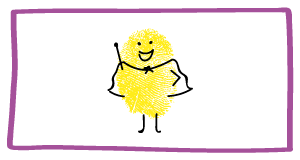What Exactly Is VR?
We sat down with Steve Bambury, Multi-Award winning educator based in Dubai & VR guru, to find out what it's all about and how it's changing the way we should be teaching our children.
What inspired you about VR to make you want to get involved with it?
I got my first VR headset in 2014 and fell in love with the medium instantly. The VR industry has already come so far since then though and it's been amazing to be stood at the intersection of virtual reality and education over these last few years. When done right, VR is pure magic - breaking the rules of time, space and physics to create utterly unique learning opportunities for students.
How would you describe what VR is to people who have never come across it before?
In theoretical terms, virtual reality sits at the opposite end of the virtuality continuum from actual reality. It represents entirely virtual worlds that the user is placed within. In between these two ends of the spectrum we have concepts like augmented reality and mixed reality where the real and the virtual are mixed. To be honest, the biggest confusion people still seem to have is the difference between the two most commonly used terms - AR and VR. The way I explain it is that it's like import/export. AR allows you to import digital content into the real world e.g. I can use an AR app to place a digital model of a Greek vase on my desk in the real world. VR represents export since you are exported from the real space into a totally digital world e.g. I could use VR to walk around an Ancient Greek town.
Why is VR such a powerful tool in Education?
I've spoken on this topic internationally and my list of reasons grows all the time. My core eight reasons can be found on this graphic which I published a couple of years ago. Ultimately, VR can make the impossible, possible. It can grant us fresh perspectives and allow us to learn things in the most kinesthetic, engaging way that's ever been possible.

How is VR evolving and where do you think it will lead us next?
Essentially like all technology, it's getting smaller, faster and cheaper at an exponential rate. The days of mobile VR (i.e. phones in headsets) are numbered at this point. We've already seen standalone headsets like the Oculus Go, Vive Focus and Mirage Solo and 2019 will see the launch of two headsets which genuinely could change the industry - the Oculus Quest and the HTC Vive Cosmos.
Content is always king and the real magic of VR is best enjoyed with others. We'll see more and more multi-user experiences that allow for whole groups (or classes) to experience the same space together, collaborating and communicating together.
What would you say to educators that are nervous or sceptical about VR in the classroom?
Honestly? Don't just look at a 360 picture or watch a 360 video and conclude that this is what VR is - it's not. In fact most people working within the VR industry itself would not even consider this type of technology VR at all. You have to try full, room-scale VR to appreciate it - it CANNOT be described to you. the visceral experience of stepping inside a digital world is unparalleled!
To find out more check out Steve's website at www.virtualiteach.com or his YouTube channel www.youtube.com/stevebamburyVR


